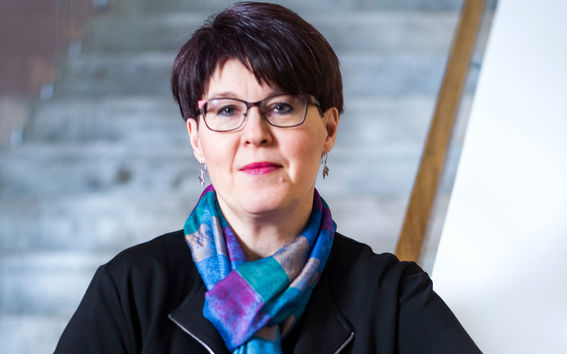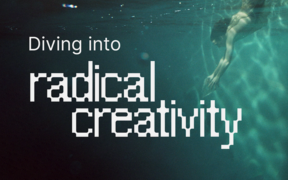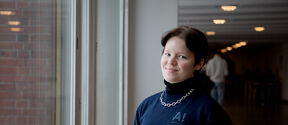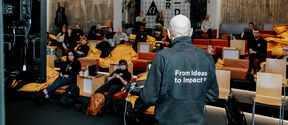'Modern workplaces should foster understanding of phenomena and the ability to tackle complex challenges,' says Riitta Silvennoinen, Chief Human Resources Officer at Aalto University. She emphasizes the necessity of radical creativity and the courage to think and act differently than before.
Drawing on her experience in many organizations, Silvennoinen says that fast-paced organizational changes urge employees to shift mindsets, learn new skills, and develop their work practices.
'The world does not change in separate compartments. In today's working environment, there is a growing need for a solution-oriented mindset, and being proactive and curious entails understanding a broader perspective beyond one's specific job description. Each of us possesses untapped creativity, that often simply needs to be awakened.'
'As someone who manages personnel, I often face the dilemma of motivating people to allocate time for learning amidst numerous competing priorities and never-ending daily tasks. There is typically no directive to prioritise learning. This is why I encourage you to reserve time for acquiring new knowledge. This investment will undoubtedly yield new insights and ideas.'
The Diving into Radical Creativity online course, open to all, is included in Aalto University's staff training program. Aalto's employees can enroll in the course via Workday Learning starting from November 14, 2024. It is essential to discuss with your supervisor the timeframe within which you can study the course as part of your work responsibilities.
You can develop collaboration and creativity
Freeing up time for new pursuits requires reallocating time from existing activities. Silvennoinen urges supervisors to reconsider how time is allocated between meetings and team work. 'I have observed an unnecessary tendency to keep decision-making and work tasks separate. Instead I'd advocate for more time for truly co-creative work.'
Silvennoinen shares an example from her own HR organisation, in which one team faced challenges with heavy workloads and constant time constraints that hindered collaboration. As an alternative to traditional meetings, the team implemented three-hour sprints, dedicating focused time to jointly tackle one project at a time. This collaborative approach generated positive energy and accelerated task completion. Furthermore, this new working method stimulated creativity by taking into account diverse perspectives and increased synergies within the projects.
According to Silvennoinen, the online course on radical creativity addresses topical themes for any supervisors, employees, and managers: the concept of creativity, diverse types of creativity, innovative working methods and team work, leadership for creativity, strategic risk-taking, and learning from uncertain experiments.
'Exactly the areas that we are also cultivating at Aalto: promoting inclusivity, fostering a collaborative culture, and embracing uncertainty. It's about being able to pause on a new idea for a while and look at it from different perspectives before saying no.'
















